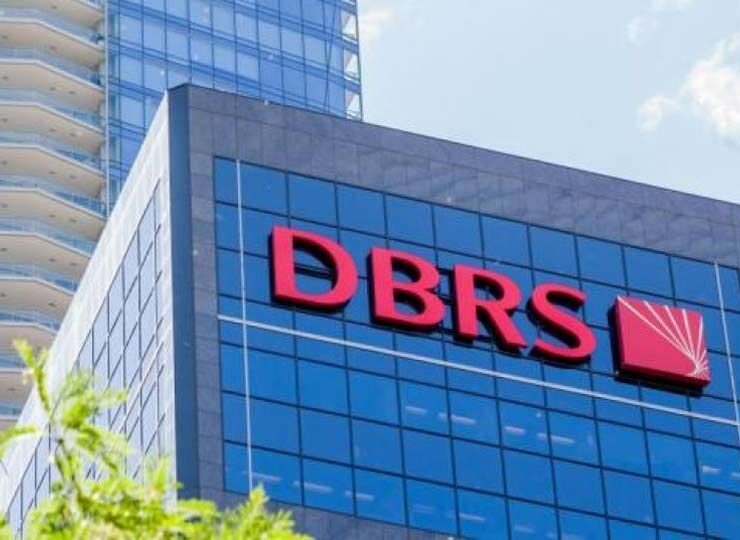Greece is seeking an exemption from EU fiscal rules to exclude defence spending from budget targets, aiming to free up €500 million in 2026. Finance Minister Kyriakos Pierrakakis confirmed the request, highlighting its potential to create fiscal space for citizen-focused initiatives, while the government also advances key infrastructure recovery projects in storm-hit regions.
Tag: Greek economy
Prime Minister Kyriakos Mitsotakis announced on April 27, 2025, that the Greek government will cover one month’s rent annually for over 900,000 tenants starting this November. Aimed at sharing economic growth, the measure offers up to €900 for primary residences and €800 for student housing. “As Greece prospers, so should our citizens, especially the youth,” Mitsotakis said, highlighting support for renters.
IMF Managing Director Kristalina Georgieva praised Greece’s economic transformation during a meeting with Finance Minister Kyriakos Pierrakakis, calling the country a model for global progress. Highlighting strong growth, fiscal discipline, and digital reforms, Georgieva said Greece has become one of the EU’s best-performing economies.
Greece’s fiscal performance in 2024 has exceeded expectations, with Eurostat confirming a primary surplus of 4.8% of GDP—nearly double the initial target. The overall fiscal balance also shifted into surplus, highlighting the country’s strong economic rebound and adherence to EU fiscal rules.
Prime Minister Kyriakos Mitsotakis welcomed the temporary suspension of U.S. tariffs and urged the EU to pursue a zero-tariff trade deal with Washington. During visits to industrial hubs in Central Greece, he highlighted government support for manufacturing, rising wages, and record-breaking investments aimed at boosting exports and reducing unemployment.
Greece remains on FTSE Russell’s Watch List for a potential upgrade from “Advanced Emerging” to “Developed Market” status, with the next evaluation set for September 2025. While the country meets most key criteria, including market quality standards and high GNI per capita, its final eligibility will depend on updated market data and credit ratings later this year.
European Central Bank policymaker Yannis Stournaras warned that rising inflation driven by U.S. tariffs could delay the ECB’s plans to normalize monetary policy. While Greece may face limited direct impact, broader global trade disruptions could affect exports and investor confidence.
The new Trump tariffs threaten Greek exports to the U.S., putting over €440 million worth of iconic products like feta cheese, olive oil, and Kalamata olives at risk. As producers face potential losses and unsold stock, the Greek government is eyeing markets like India and China to offset the blow, while the EU braces for a shift in global trade dynamics.
The Athens Stock Exchange plunged nearly 8% this week, with a sharp 4.8% drop on Friday, as global trade tensions escalated following U.S. President Donald Trump’s imposition of “reciprocal” tariffs. Mirroring the turmoil across European markets, the General Index closed at 1,597.55 points, while the banking sector suffered a 7.15% decline. Analysts warn of a looming trade war, with China’s retaliatory 34% tariffs on U.S. goods and Europe’s expected response deepening fears of a global recession.
Greek exports began 2025 with strong momentum, recording a 9.9% increase excluding petroleum products and a 2.2% rise overall. Key sectors like food, industrial products, and beverages saw significant growth, while energy and machinery exports declined. Despite the positive trend, rising imports widened the trade deficit, raising concerns about long-term sustainability. Experts emphasize the need for Greece to diversify its export markets, particularly beyond the EU, to maintain economic resilience and competitiveness.
DBRS Morningstar has upgraded Greece’s credit rating to ‘BBB’ from ‘BBB-‘ due to improvements in the banking sector and a significant reduction in the country’s debt-to-GDP ratio. This marks a continuation of Greece’s positive fiscal performance, with expectations for strong economic growth and further debt reduction in the coming years. The upgrade reflects Greece’s progress in stabilizing its financial system and achieving fiscal targets, as well as the return of profitability for Greek banks after years of government support following the financial crisis.
Europe is looking for ways to increase its defense spending with the Commission presenting the…
Greece’s Interministerial Strategic Investments Committee has given the green light to three major projects worth a combined €1.22 billion, marking a significant step towards fostering economic growth and sustainability in the country’s tourism sector.
Retail rents in Greece’s prime shopping streets continued to rise in 2024, with Ermou Street leading at €300 per square metre. Thessaloniki’s Tsimiski Street overtook Glyfada, while other key areas also saw increases. Strong retail investment highlights the resilience of Greece’s commercial property market.
George Procopiou secures full ownership of Athens’ iconic Astir Palace Resort.
For over 2,500 years, the olive tree of the Acropolis has remained a worthy symbol of Athens, an undying and ancient representation of prosperity, peace, hope, and resurrection. Planted by the Goddess Athena herself, as Greek mythology would have it, the tree has suffered many fires and mutilations as invaders have come and gone. But a sprig was always saved to be planted later.
Athens, Greece – Taxi services across Attica are halted today as the Attica Taxi Drivers Syndicate (SATA) stages a 24-hour strike from 6:00 AM Wednesday to 6:00 AM Thursday. Drivers are protesting unfair competition from ride-hailing services like Uber and Bolt, demanding better enforcement of fare regulations, tax reforms, and a delay in the mandatory shift to electric taxis. SATA has called for nationwide support, urging unions across Greece to join their fight. The strike is expected to cause major disruptions, particularly at airports and transit hubs.
Why Greece aspires to be India’s natural gateway to Europe – How diplomatic and economic…
Greece is closely watching potential U.S. tariffs on the European Union, fearing secondary economic impacts, particularly on tourism. While Greek exports to the U.S. are relatively small, officials worry that a trade war could reduce European consumer spending and harm Greece’s vital tourism sector. With rising competition for Greek goods, the government is focusing on boosting investment and exploring new markets.
Alpha Bank has announced a major move in the Greek financial sector with the acquisition of Flexfin and its merger with ABC Factors. This strategic initiative aims to create a leading factoring company to enhance liquidity solutions for SMEs, significantly impacting Greece’s business landscape by supporting over 4,500 SMEs and managing a financing portfolio exceeding 1 billion euros.




















